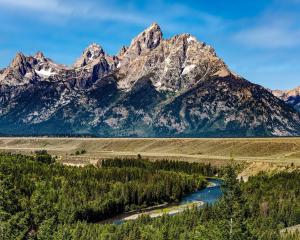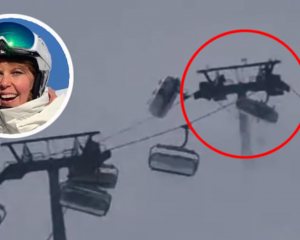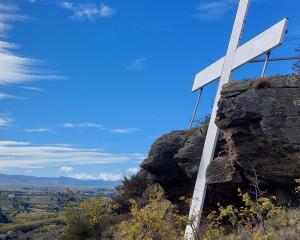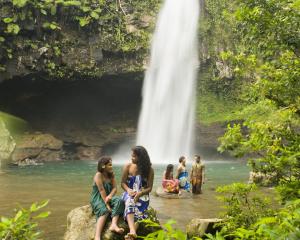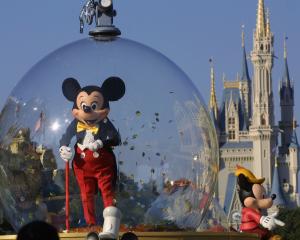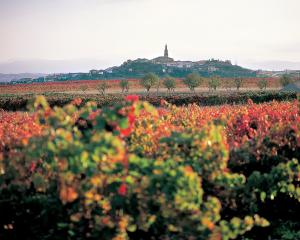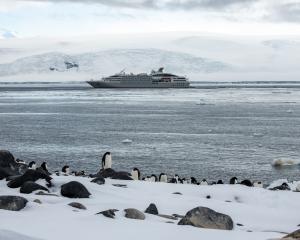Meg Davidson discovers the ghosts of New Zealand's agricultural past on East Cape, and meets a man who has returned home to this beautiful, isolated coast after 50 years of city life.
Down by the Tokomaru Bay wharf, the steamy air was heavy with the scents of salt, fennel and wild ginger.
Outside the ruins of the New Zealand Shipping Company offices a young Maori noodled away on his guitar.
Substantial administration buildings, woolstores and meat-processing plants: all were derelict, overrun by rampant vegetation.
The ghosts of New Zealand's agricultural past stalk the coast between East Cape and Gisborne, as a friend and I discovered during a recent road trip.
The scale of human enterprise in this far-flung corner of New Zealand took us by surprise.
From 1911 until it closed in 1952, the Tokomaru Bay freezing works loaded meat directly on to the ships docking there - more than 400 ships annually in the years leading up to World War 1.
Waipiro Bay was our eeriest stop. The mist served up picture-postcard snapshots as the road wound down the hill to a well-kept marae and little brick church by the beach.
The place was seemingly deserted except for a goat gazing mournfully out to sea.
The population of Waipiro Bay was 96 at the last census, down from a peak of 10,000 in the early 20th century.
Once the largest town on East Cape, it still in the 1940s boasted a blacksmith, a cinema, a police station, a billiards bar, a hotel, a library, a bakery, a post office, two shops and the Waipiro Trading Company.
Trade was behind it all.
Until roads improved, the sea was the only feasible route for taking out wool, meat and livestock, and bringing in supplies for coastal communities and the large sheep and beef stations of the hinterland.
At Waipiro Bay there was no harbour, so goods were loaded on to small boats and ''surfed'' out to steamers waiting offshore.
Other settlements - Tolaga, Tokomaru and Hicks bays - had amazingly ambitious wharves.
Now curious visitors clamber through the ruins and chat to the locals fishing off the wharves.
Interpretive plaques are few, and this laid-back form of tourism seems fitting for the unspoiled vibe of a region little known to most New Zealanders, apart from icons such as the 600m-long Tolaga Bay wharf (recently restored at enormous cost) and the East Cape lighthouse.
After World War 2, East Cape's isolation began to tell on farmers' pockets and the Maori exodus to the cities began. Knox Toheriri was part of that trend.
His family left Waipiro Bay for Wellington when he was still at primary school.
Now, more than 50 years on, the former taxi driver has returned with his wife, Marilyn, to restore the fortunes of Te Puia Springs Hotel, 7km from Waipiro Bay and built, Knox believes, in 1918. People came to Te Puia Springs for the healing properties of the spring water with its particularly high mineral content; captains of ships anchored at Waipiro Bay also stayed, lured by the superior accommodation and ''silver service'' dining room.
It was a balmy Friday evening when we checked in.
French doors opened from our room on to the upstairs veranda with its view of palms and Japanese maples.
We enjoyed a bottle of wine there, while downstairs in the public bar the locals watched the rugby sevens in raucous good humour.
Earlier we had strolled down to KFC (Kai For Coasties) for kai moana and chips.
The paua patty was a real one, positively black with the stuff, and the terakihi was from Gisborne.
Kai For Coasties was tacked on to the back of Te Puia Springs' one store.
I'd been there once before, in 1980.
That was my first experience of being the only Pakeha in a room, and the first time I had heard a conversation conducted entirely in Maori.
Now Nanny Kay arrives for her fish and chips in a 4WD and her mokopuna shouts her order in English, but otherwise not much has changed.
Some 80% of East Cape's residents are Maori.
Knox and Marilyn have worked hard to meet the demands of present-day travellers, who write glowing reports of the impeccably refurbished rooms and the charm and nostalgia of this old country hotel.
But there is a fly in the ointment - paradoxically, the reason the hotel was built in the first place: its mineral hot pool.
The pool is the bane of Knox's life.
Our blissful soak was interrupted by loud hammering on the door by Knox, who had come to confront who he thought were ''cheeky buggers'' who kept swimming there without paying.
A modest $5 fee was poor recompense for the never-ending pool maintenance, and not everyone was game for a plunge even at that small price.
The cloudy, sulphurous water didn't look clean even when it was.
A previous owner who valued privacy over atmosphere had enclosed the small, tiled pool in a concrete shed like a toilet block, losing the view of the idyllic tropical garden to the west.
Nothing that a million dollars-worth of engineering and landscaping wouldn't fix; and in fact, Knox had been urged to establish a luxury spa with guests flown in by helicopter.
But that wouldn't be Knox.
It would sit uncomfortably with the locals in the public bar and the hotel's bread-and-butter guests: the forestry and roading contractors in the staff accommodation out the back, those being the main sources of employment on the coast these days.
Knox was thinking of closing the pool.
Selfishly, I hope he doesn't.
This is the New Zealand I remember.
Like Ngawha Springs in Northland, Te Puia Springs Hotel pool is one of a dying breed of unpretentious, down-at-heel, don't-put-your-head-under hot springs that ordinary people can afford.
East Cape's geographic isolation is a double-edged sword.
Relatively few tourists come this way.
''Progress'' has not spoiled the beaches, but time continues to degrade the astounding remnants of a pastoral economy scuttled in part by transport costs.
Go there before any more is lost.
You will not be disappointed.
• Meg Davidson is a Dunedin writer.




